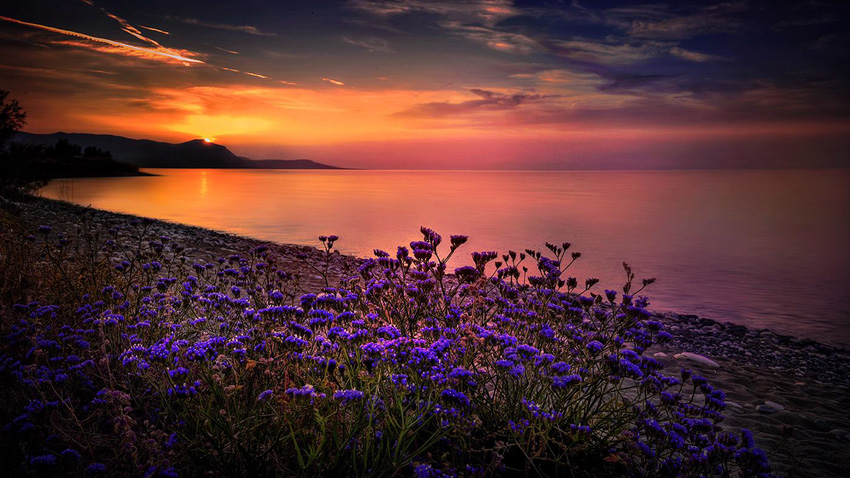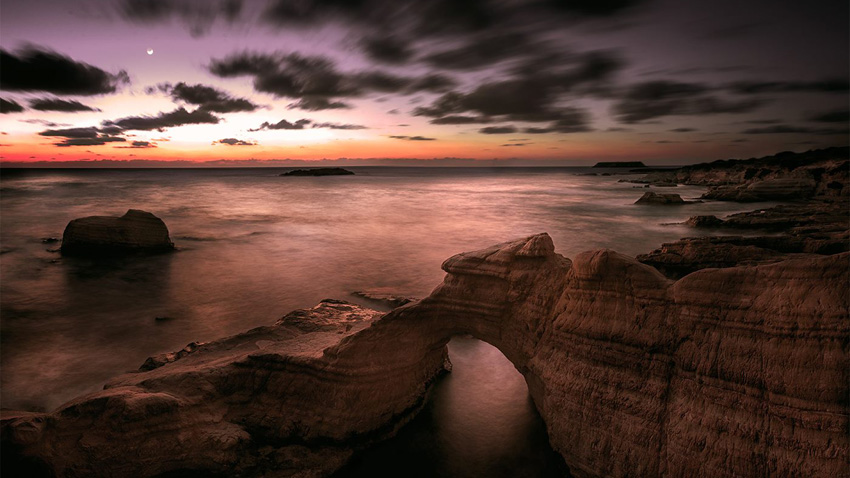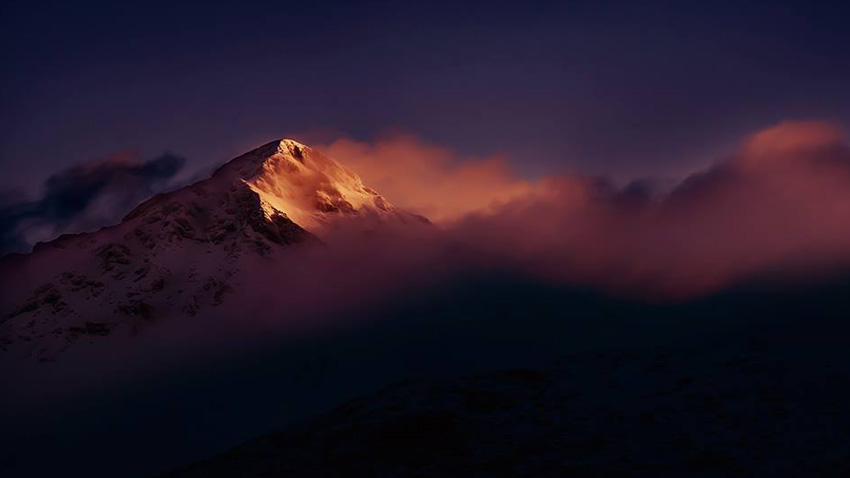An engineer by training, a photographer-artist by vocation, Albena Markova gets her thrills out of landscapes, nature in all of its splendor – at dawn or at dusk, the meadows, the flowers. The location she loves most is the Rhodope Mountain, which she says she has a powerful emotional bond with. It was there, in that mystic mountain, also known as the mountain of Orpheus, that ten years ago Albena first got the urge to take photographs and share her experience with others:
“It was an incredible, rare autumn. Because if you want to make an autumn picture of beauty, there has to have been a longish dry spell with no frost. But that was something I was to find out later on when I started chasing autumns. That autumn the hues were simply unbelievable, an incredible blaze of colours. I was overwhelmed by what I saw,” says Albena Markova.

She plucked up the courage to start publishing in popular Bulgarian photography websites and little by little, as she herself puts it, she was “seized with a photographic frenzy.” And gradually came recognition of her work – first at regional forums, then at international events. But isn’t the fact she has no photographic training a hindrance? Or is it the other way round – perhaps this is what helps her find a more unorthodox angle?
“To my mind training in photography is rather odd,” says Albena. “Yes, one needs to learn about the equipment one uses. When you get to the “first steps” level you want to start using a better, more sophisticated camera. But when I was starting out there was no one to teach us, we had to teach ourselves. But that is a long process by trial and error. It is so much easier now – there are all kinds of courses. Training is important but if you don’t have the makings of a photographer, there is no way you can become one.”

For a landscape shot to be outstanding you need to find an interesting target and an intriguing story to tell. The other important thing is light. “The most interesting of things will look boring if you take a picture in ordinary, dull light,” says Albena. And adds that at the beginning she took pictures of absolutely everything “like a Japanese tourist”. Now she is on the lookout for pictures she has already “constructed” in her head. Her photographs are mostly of landscapes with a building or two but only very rarely – humans. Why?
“I think that we all take photographs of what we are. The things one takes pictures of are very revealing. I can make a profile of any person just by looking at their photographs,” says Albena but declines to describe her own self based on her photographs.

Just as poets pour out their souls in their verses, a modicum of a photographer’s soul goes on living in his or her photographs. Photography is the bond between one’s state of mind and the pictures captured in photographs.
“Yes, it is always so. I can feel at times, when my spirits are low that the photographs I take are just not what I was after. But when I am euphoric, in love or when I am engaged in the vital process of post-production in a state of semi-meditation, then the results are outstanding,” says Albena Markova in conclusion.
English version: Milena Daynova
Photos: courtesy of Albena Markova